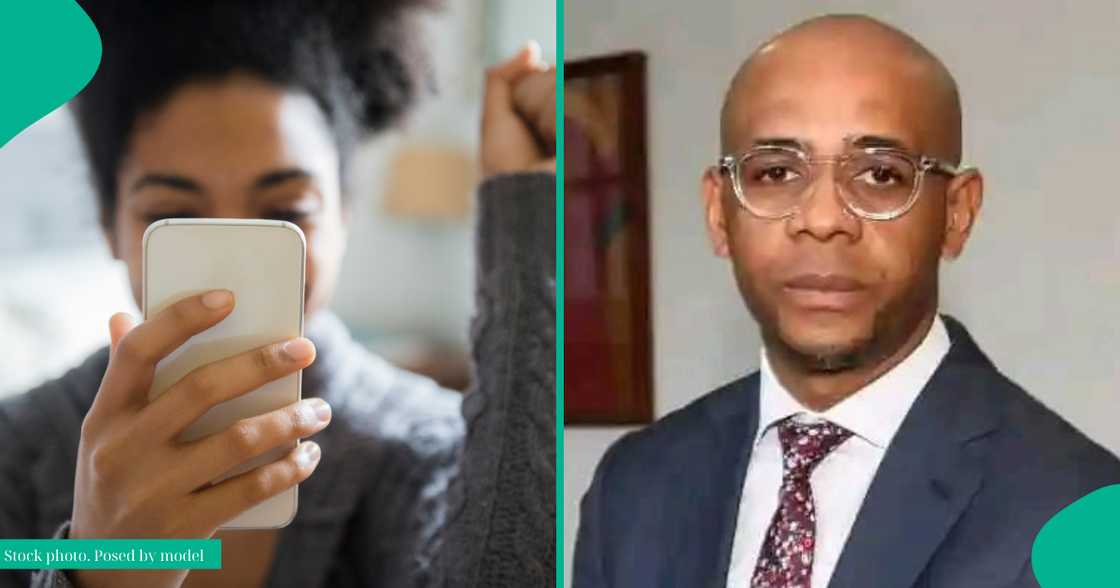The Government of Equatorial Guinea has implemented restrictions on WhatsApp, barring citizens from downloading and sharing multimedia files using mobile data.
Legit.ng reported that this drastic measure follows a scandal involving Baltasar Engonga, the Director General of the National Financial Investigation Agency (ANIF), who is embroiled in a controversy involving over 400 explicit videos with notable individuals’ wives.

Photo credit: Jamie Grill, Facebook/Baltasar Ebang Engonga Lady’s photo for illustration use only
Source: Getty Images
Why Equatorial Guinea restricted WhatsApp?
The decision to restrict WhatsApp access was communicated to telecommunications operators, who were urged to enforce measures to limit access to inappropriate content.
This response has raised eyebrows among citizens who view it as a punitive action affecting their communication rights.
The Punch reported that users expressed frustration over their inability to share photos, videos, and audio via mobile data, forcing many to rely solely on WiFi networks.

Read also
Equatorial Guinea govt announces fresh actions after 400 sex tapes hit public spaces, details emerge
One user lamented:
“Should an entire country pay for the actions of a few? The likely decision to restrict access to essential communication functions seems disproportionate and punitive.”
The revelation has caused a media uproar, and citizens are demanding accountability.
“This situation has generated a heated debate among the population,” Ahora EG reported. “Many believe that the measure seems to be more focused on controlling than facilitating communication. Currently, users are forced to rely exclusively on WiFi connections, which not only limits their ability to communicate but also interferes with their daily activities.”
Concerns over the government’s lack of transparency regarding the restrictions have also been voiced. “Is it really fair that everyone should suffer the consequences of the actions of a few?” questioned another source. “The authorities have not yet provided any explanation for the reasons behind this restriction, nor the duration of the same. At a time when information and communication are more vital than ever, the lack of transparency only aggravates citizens’ concerns.”

Read also
NNPC speaks on availing N620/litre fuel as protesters storm headquarter, demand Kyari’s resignation
Vice President’s Surveillance Plan Intensifies Tensions
In a related move, Vice President Teddy Nguema recently announced plans to install surveillance cameras in all state offices. This initiative aims to ensure strict adherence to public service laws and combat misconduct among officials. However, it has added to the feeling of unease among the populace, who fear an erosion of privacy in the wake of the ongoing scandal.
As the situation develops, citizens continue to grapple with the implications of government actions on their communication freedoms and rights, demanding both accountability and transparency from their leaders.
PAY ATTENTION: Сheck out news that is picked exactly for YOU ➡️ find the “Recommended for you” block on the home page and enjoy!
Source: Legit.ng

